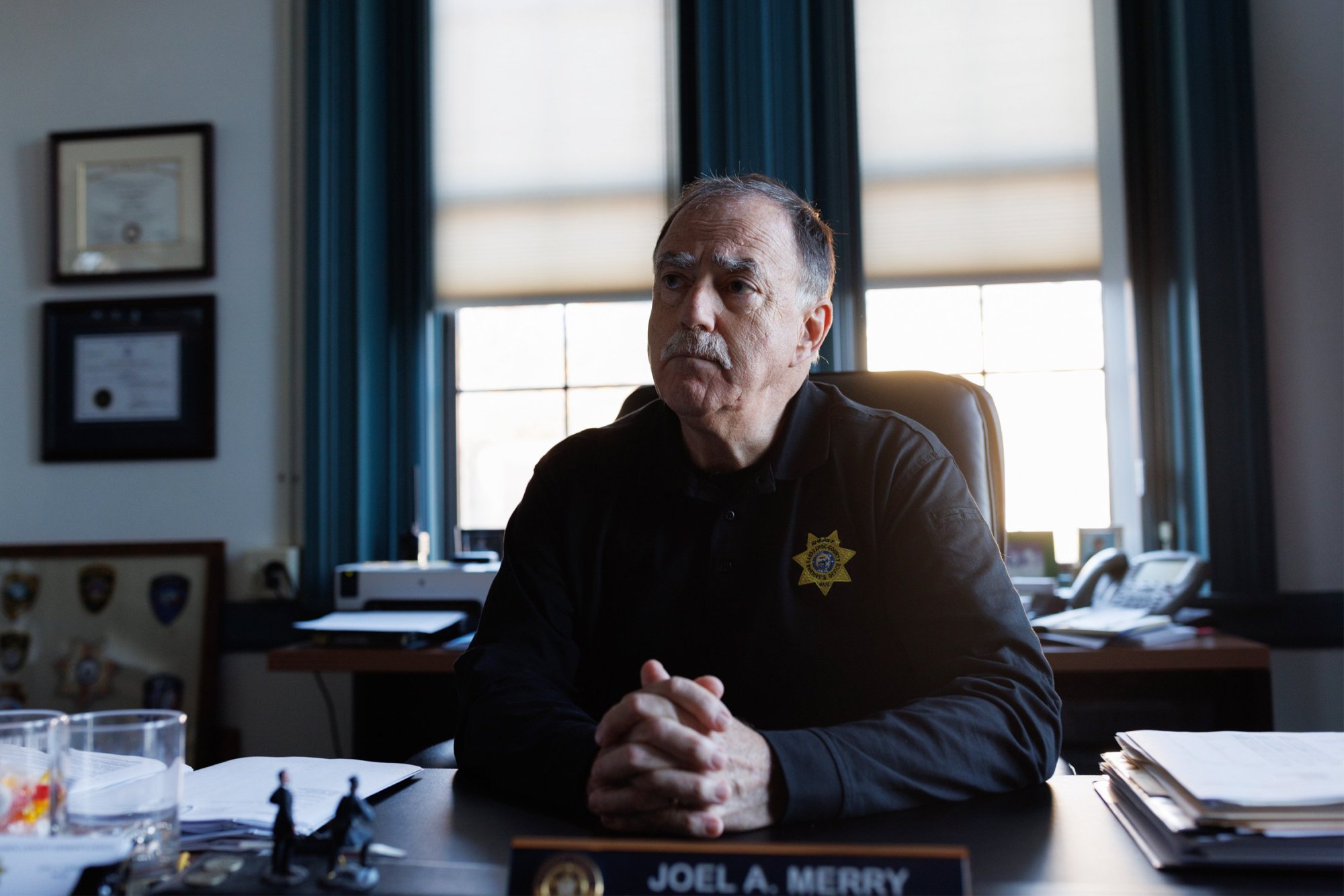Joel Merry is serving his fifth term as chief law enforcement officer for Sagadahoc County.
My 40-year career in law enforcement has taught me there are always multiple ways to approach a situation. Protecting the public, upholding the law and keeping law enforcement safe — my responsibilities as Sagadahoc County sheriff for 17 years — all depend on finding the right tool for the right problem. Having multiple tools available to respond to situations helps us do that.
That’s why, after careful consideration, I’ve decided to vote “Yes” on Question 2. It’s a reasonable proposal that will provide another tool to keep families safe, help our officers protect our communities and ultimately help save lives.
Question 2 would create an Extreme Risk Protection Order law, like those that exist in 21 other states, which empowers families to go directly to a court when a loved one is in crisis and, if a court finds them dangerous, temporarily restrict their access to firearms.
Under Maine’s current law, called the “yellow flag” law, a family’s only option is to call law enforcement, who then have to take the person into custody and put them through a mental health evaluation before going to a judge. We’ve made effective use of the yellow flag law, and my support for Question 2 isn’t rejecting that. But Question 2 doesn’t take that law away. Law enforcement will still have the discretion to take a person into protective custody before pursuing firearm removal — if that’s the right tool to address the situation.
Sometimes it isn’t the right tool. Sometimes a family doesn’t want to call the police. Maybe their loved one is suicidal and they don’t want to see them taken away in the back of a police car. Or maybe their family member is going through a crisis — they lost their job, they’re getting evicted, they’re going through an ugly divorce — and they’re worried that if the police show up it will only raise the temperature on the whole situation. I understand that. I would like people to still involve law enforcement first, but that isn’t always going to happen.
Most importantly, if it doesn’t happen, I don’t want the result to be the loss of life.
Question 2 allows law enforcement to go directly to a court as well, which matters because someone can be dangerous without being mentally ill — I’ve seen it plenty of times. I’ve also seen yellow flag cases where an attorney gets a court to dismiss the request because they can prove the person isn’t mentally ill, which is where our current law places the focus. It shouldn’t. We often know someone is dangerous from the moment we respond. Question 2 would allow us to go to a judge and get an emergency order first. Then we can coordinate with a family and remove firearms before making contact with the individual.
That’s why I don’t buy the claim this law will supposedly make things less safe for law enforcement. Our jobs are already dangerous. That’s the job. In my experience, there is often nothing more dangerous than trying to put a heavily armed person in crisis into protective custody. This law will give us more tools and more information to do our jobs, which makes us safer.
Again, it’s about the right tool for the particular situation, whether that’s responding to a threat of self-harm, a threat against family or ensuring another community never has to experience the horror of Lewiston.
There were many questions in the aftermath of that terrible tragedy. I asked many of them myself. Mostly, how we ensure warnings never fall through the cracks again. There was one tool then on which the whole system depended. Had this law been in place, there would have been other tools. The shooter’s family could have gone directly to a court to get an emergency order. We could have coordinated with the family and retrieved a warrant to remove the firearms from the shooter’s home and vehicle while he was at work. Then, we could have confronted him after he was disarmed.
After Lewiston, my agency and agencies across the state made better use of the current law. But that doesn’t mean we can’t do more to protect our communities. Having more options on the table strengthens our system.
I’ve considered the arguments, and I’m voting “Yes” on Question 2. It will empower families, give law enforcement another tool and allow us to better protect the safety of our communities.

We invite you to add your comments. We encourage a thoughtful exchange of ideas and information on this website. By joining the conversation, you are agreeing to our commenting policy and terms of use. More information is found on our FAQs. You can modify your screen name here.
Comments are managed by our staff during regular business hours Monday through Friday as well as limited hours on Saturday and Sunday. Comments held for moderation outside of those hours may take longer to approve.
Join the Conversation
Please sign into your CentralMaine.com account to participate in conversations below. If you do not have an account, you can register or subscribe. Questions? Please see our FAQs.